Abstract
One of the most difficult tasks in cost-effectiveness analysis is the measurement of quality weights (utilities) for health states. The task is difficult because subjects often lack familiarity with health states they are asked to rate and because utilities measures such as the standard gamble, ask subjects to perform tasks that are complex and far from everyday experience. A large body of research suggests that computer methods can play an important role in explaining health states and measuring utilities. However, administering computer surveys to a "general public" sample, the most relevant sample for cost-effectiveness analysis, is logistically difficult. In this paper, we describe a software system designed to allow the study of general population preferences in a volunteer Internet survey panel. The approach, which relied on over sampling of ethnic groups and older members of the panel, produced a data set with an ethnically, chronologically and geographically diverse group of respondents, but was not successful in replicating the joint distribution of demographic patterns in the population.
Full text
PDF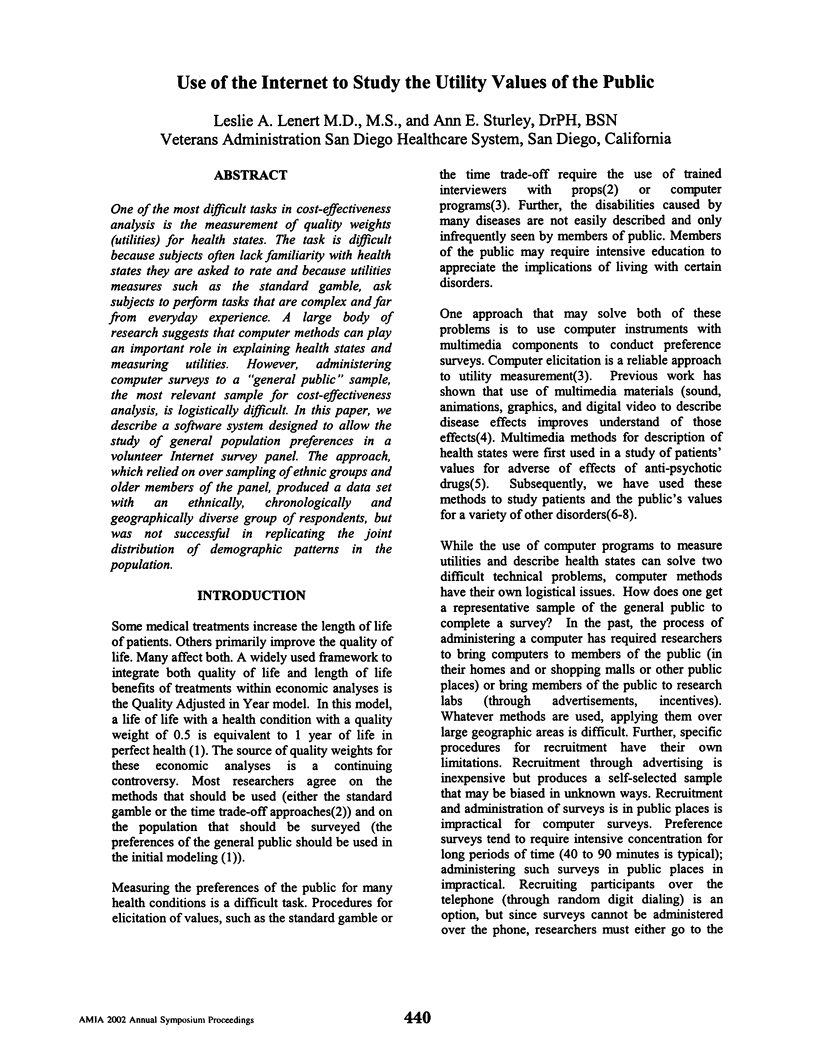
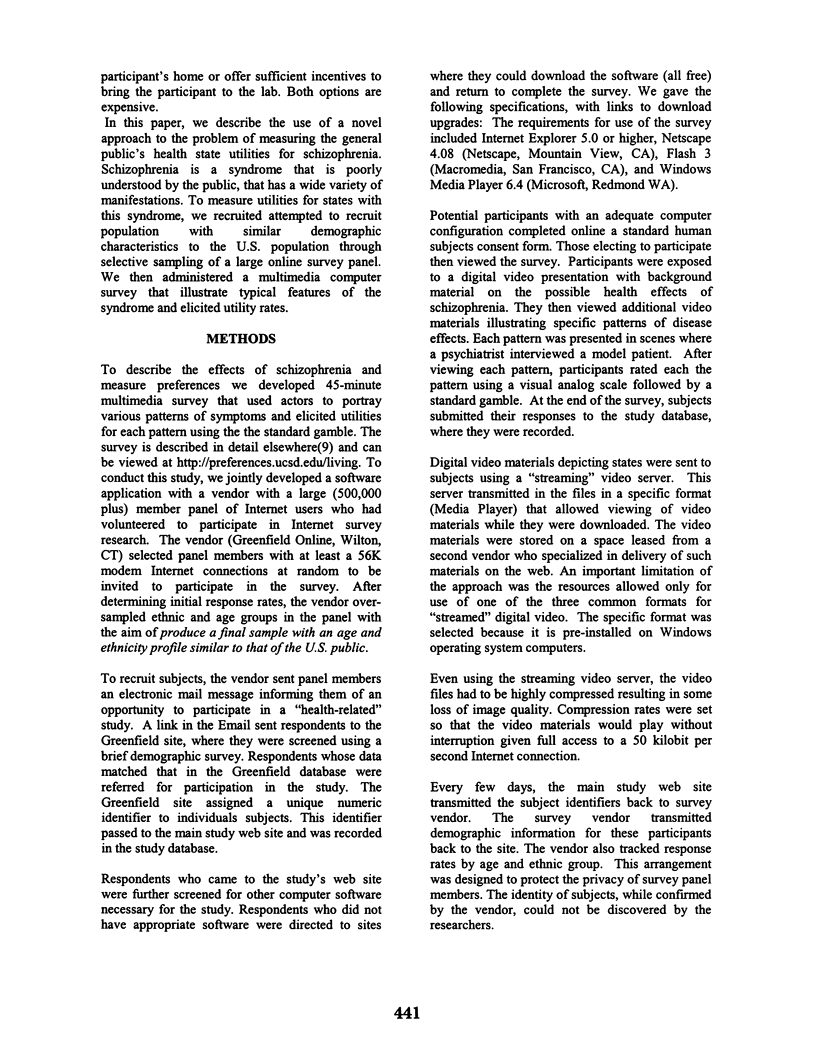
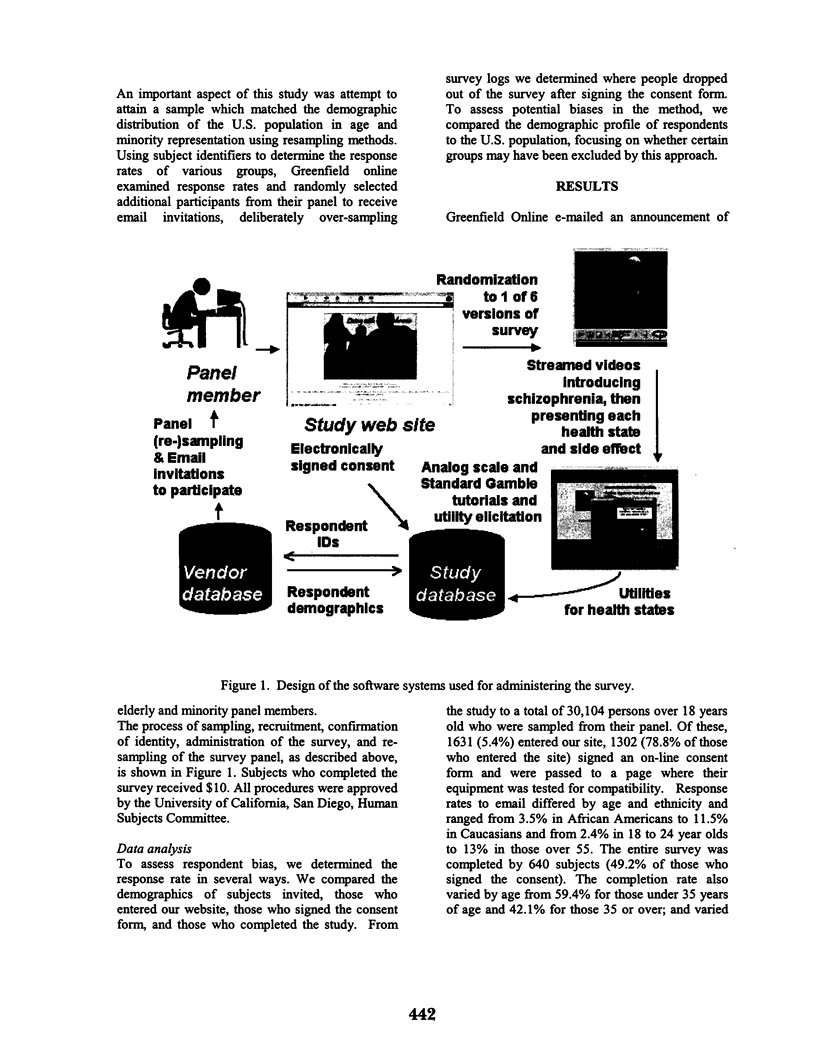
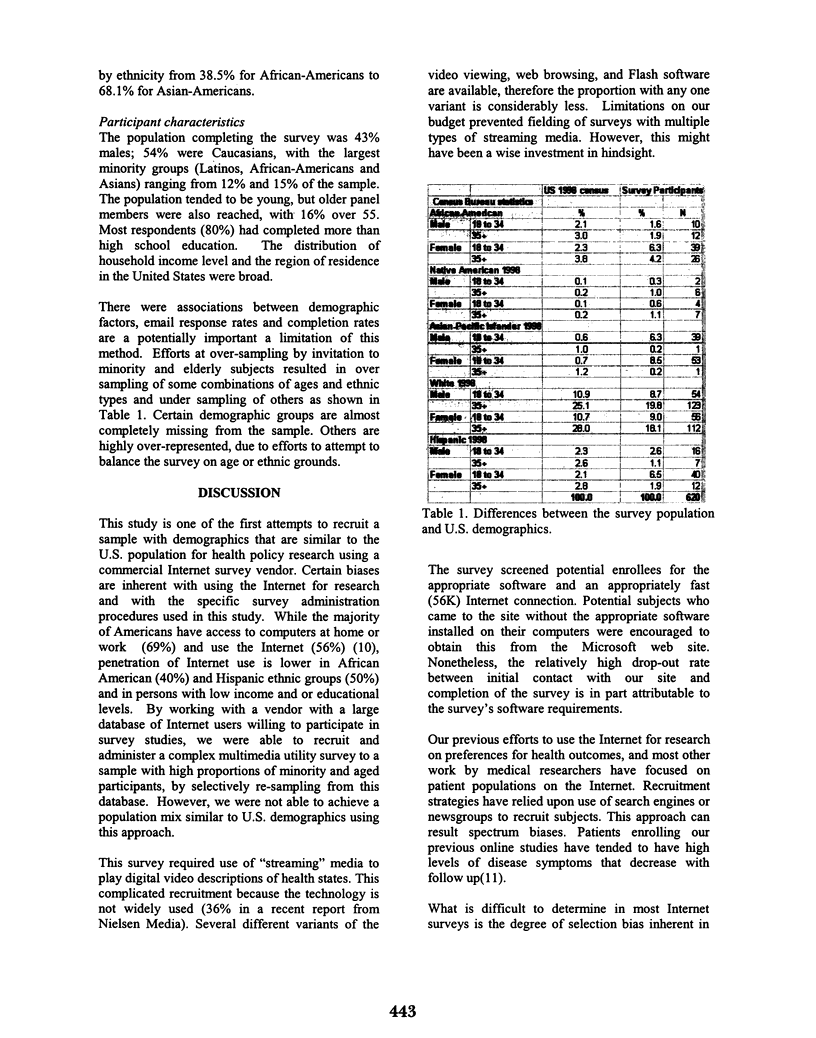
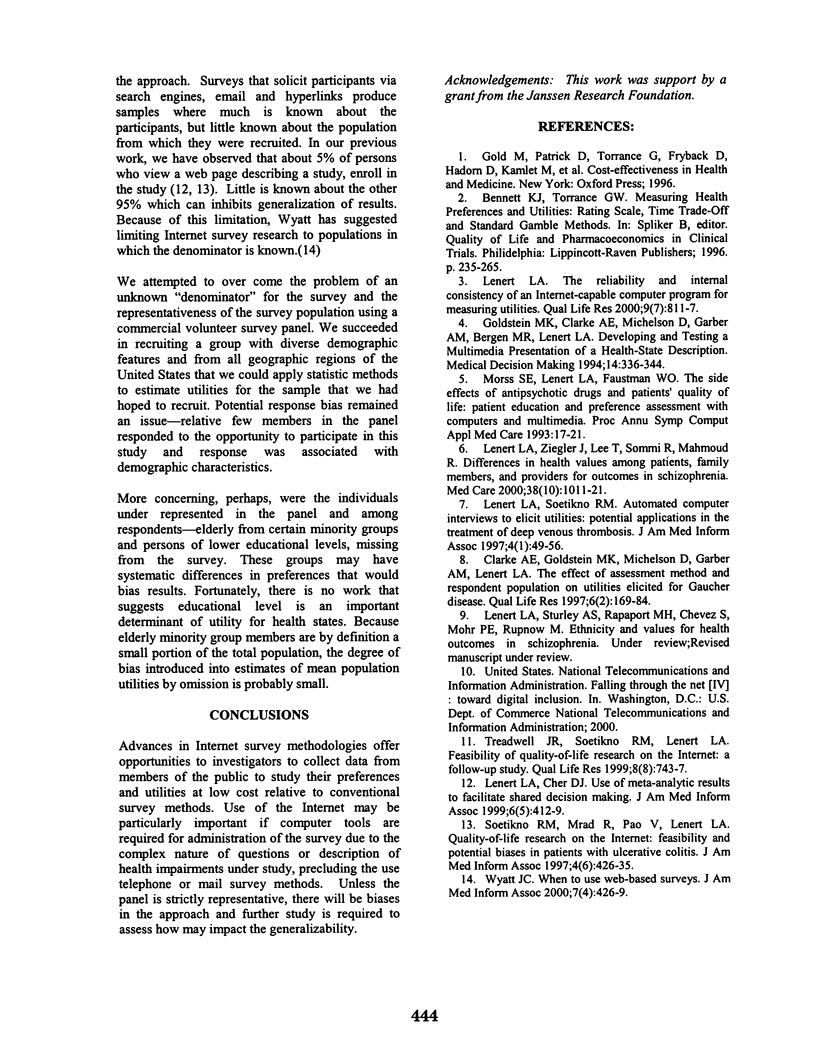
Selected References
These references are in PubMed. This may not be the complete list of references from this article.
- Clarke A. E., Goldstein M. K., Michelson D., Garber A. M., Lenert L. A. The effect of assessment method and respondent population on utilities elicited for Gaucher disease. Qual Life Res. 1997 Mar;6(2):169–184. doi: 10.1023/a:1026446302100. [DOI] [PubMed] [Google Scholar]
- Goldstein M. K., Clarke A. E., Michelson D., Garber A. M., Bergen M. R., Lenert L. A. Developing and testing a multimedia presentation of a health-state description. Med Decis Making. 1994 Oct-Dec;14(4):336–344. doi: 10.1177/0272989X9401400404. [DOI] [PubMed] [Google Scholar]
- Lenert L. A., Cher D. J. Use of meta-analytic results to facilitate shared decision making. J Am Med Inform Assoc. 1999 Sep-Oct;6(5):412–419. doi: 10.1136/jamia.1999.0060412. [DOI] [PMC free article] [PubMed] [Google Scholar]
- Lenert L. A., Soetikno R. M. Automated computer interviews to elicit utilities: potential applications in the treatment of deep venous thrombosis. J Am Med Inform Assoc. 1997 Jan-Feb;4(1):49–56. doi: 10.1136/jamia.1997.0040049. [DOI] [PMC free article] [PubMed] [Google Scholar]
- Lenert L. A. The reliability and internal consistency of an Internet-capable computer program for measuring utilities. Qual Life Res. 2000;9(7):811–817. doi: 10.1023/a:1008933720016. [DOI] [PubMed] [Google Scholar]
- Lenert L. A., Ziegler J., Lee T., Sommi R., Mahmoud R. Differences in health values among patients, family members, and providers for outcomes in schizophrenia. Med Care. 2000 Oct;38(10):1011–1021. doi: 10.1097/00005650-200010000-00005. [DOI] [PubMed] [Google Scholar]
- Morss S. E., Lenert L. A., Faustman W. O. The side effects of antipsychotic drugs and patients' quality of life: patient education and preference assessment with computers and multimedia. Proc Annu Symp Comput Appl Med Care. 1993:17–21. [PMC free article] [PubMed] [Google Scholar]
- Soetikno R. M., Mrad R., Pao V., Lenert L. A. Quality-of-life research on the Internet: feasibility and potential biases in patients with ulcerative colitis. J Am Med Inform Assoc. 1997 Nov-Dec;4(6):426–435. doi: 10.1136/jamia.1997.0040426. [DOI] [PMC free article] [PubMed] [Google Scholar]
- Treadwell J. R., Soetikno R. M., Lenert L. A. Feasibility of quality-of-life research on the Internet: a follow-up study. Qual Life Res. 1999 Dec;8(8):743–747. doi: 10.1023/a:1008963516334. [DOI] [PubMed] [Google Scholar]
- Wyatt J. C. When to use web-based surveys. J Am Med Inform Assoc. 2000 Jul-Aug;7(4):426–429. doi: 10.1136/jamia.2000.0070426. [DOI] [PMC free article] [PubMed] [Google Scholar]


